Hoang Mai Town: A series of illegal construction works
Although located in the Dong Hoi Industrial Park planning area, many households and individuals in Quynh Lap Commune (Hoang Mai Town) still build illegal houses. The local government had to set up checkpoints to prevent this, causing a lot of inconvenience.
Many houses were built illegally
In Dong Quan area, Dong Minh village, Quynh Lap commune (Hoang Mai town), recently appeared a series of illegally built house foundations. These house foundations were built on land for perennial crops and other annual crops, which have not been converted into residential land. Not to mention, this area is in the planning of Dong Hoi Industrial Park, but many households in Dong Minh village, despite the provisions of the law, continue to build houses illegally.
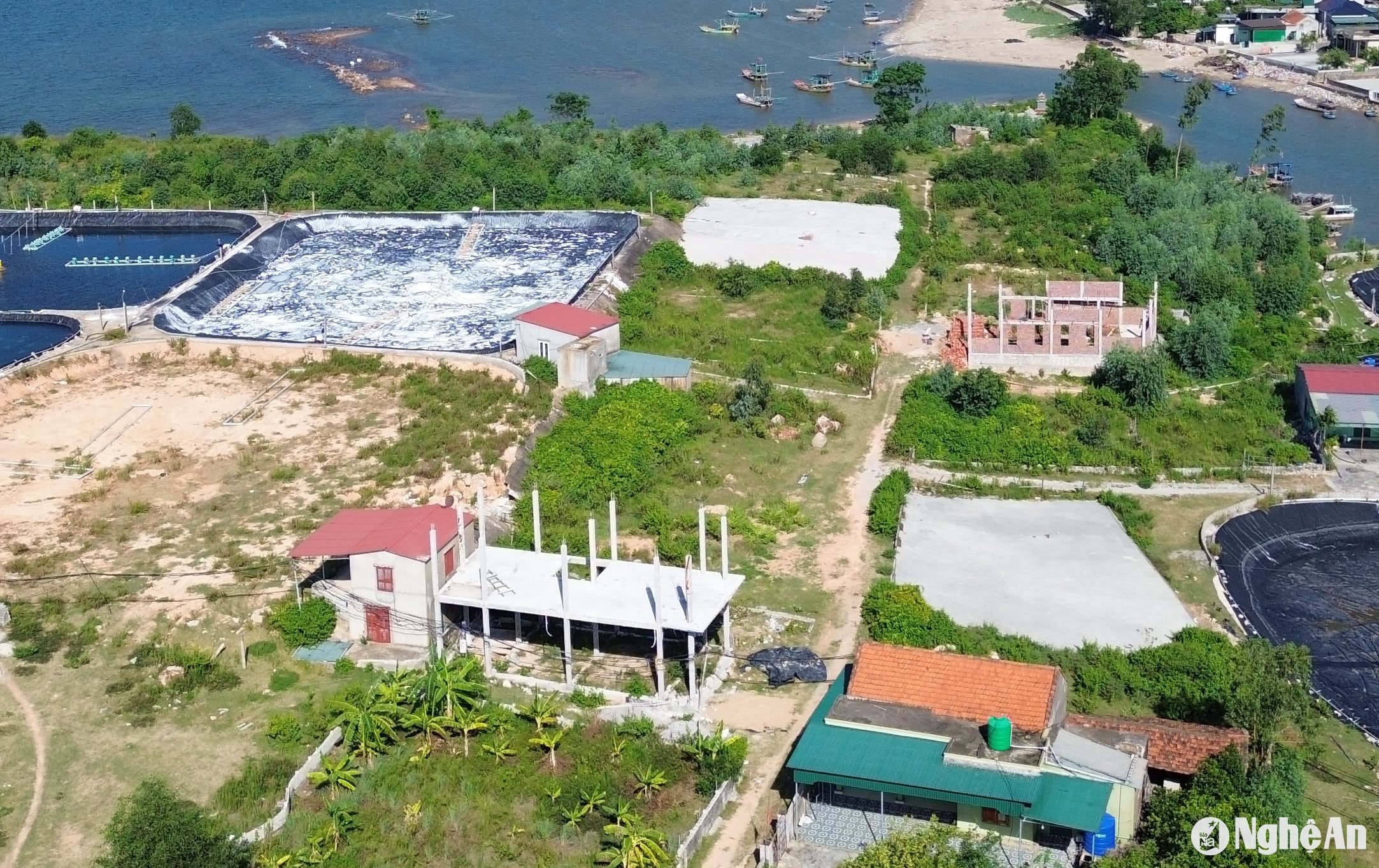
From the Dong Minh village gate, follow the winding road through the densely populated residential area to reach Dong Quan area. This is a low mountain spur extending out to the sea. From above, you can easily see many scattered house foundations, interspersed with shrimp ponds. There are some solid 2-storey houses that have completed the rough construction and are waiting for completion. Some solid house foundations are still built on land that has been divided into adjacent residential lots. Next to them are many materials such as sand, gravel, bricks, and stones gathered at the foot of the construction site to proceed with construction. Some house foundations have iron pillars waiting to be covered with old packaging.
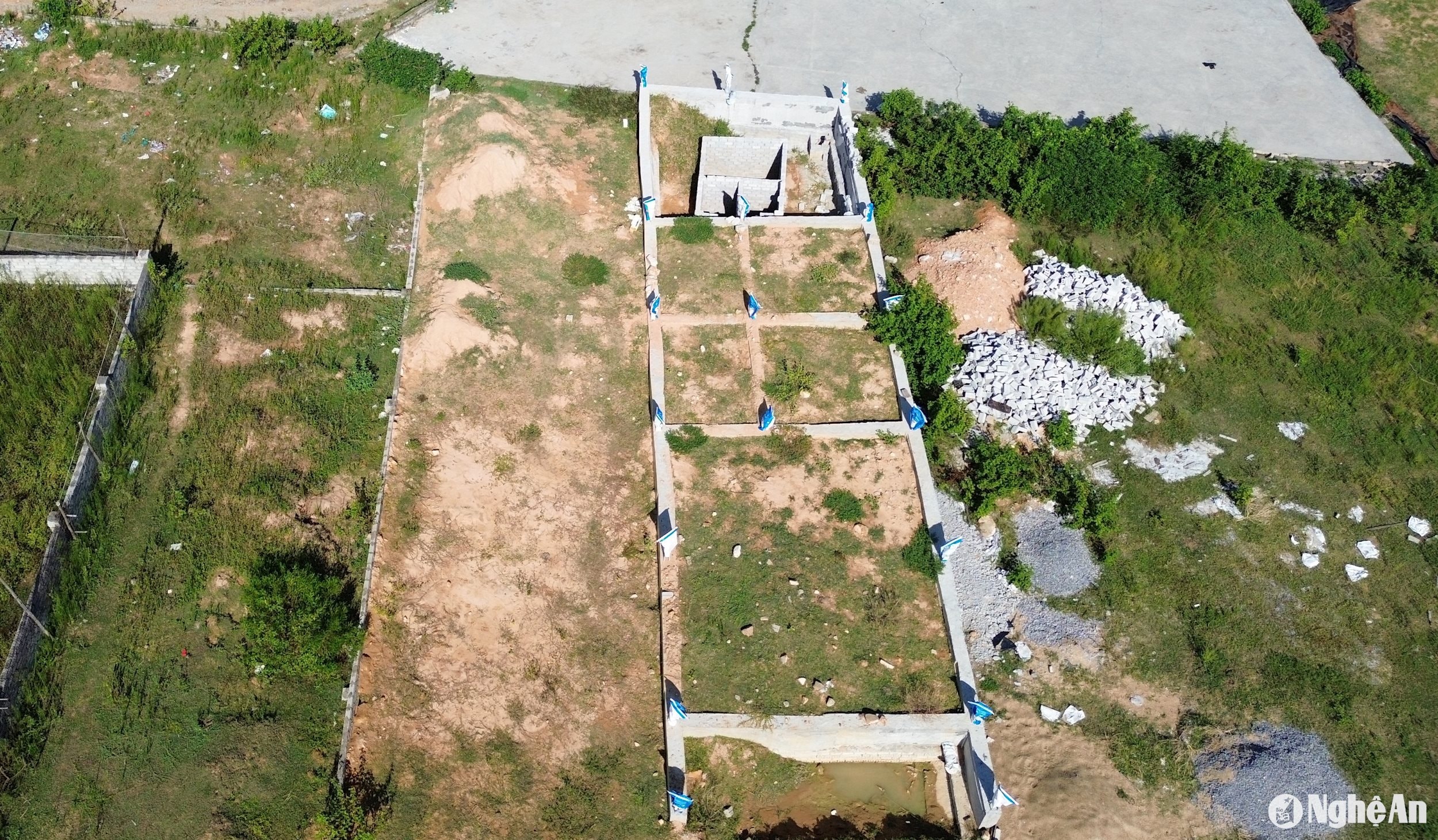
According to the representative of the Dong Minh village executive committee, these house foundations were built a few years ago, although at that time this land was included in the Dong Hoi Industrial Park planning (announced in 2010). However, because the planning was long-standing but not implemented, while the population grew, people were not allowed to expand, build houses, or even separate land titles for their children, so many households "risked" to build houses in the Dong Quan area, which they had previously purchased.
However, the local authorities later issued decisions to suspend construction, forcing households to restore the original state before the violation.
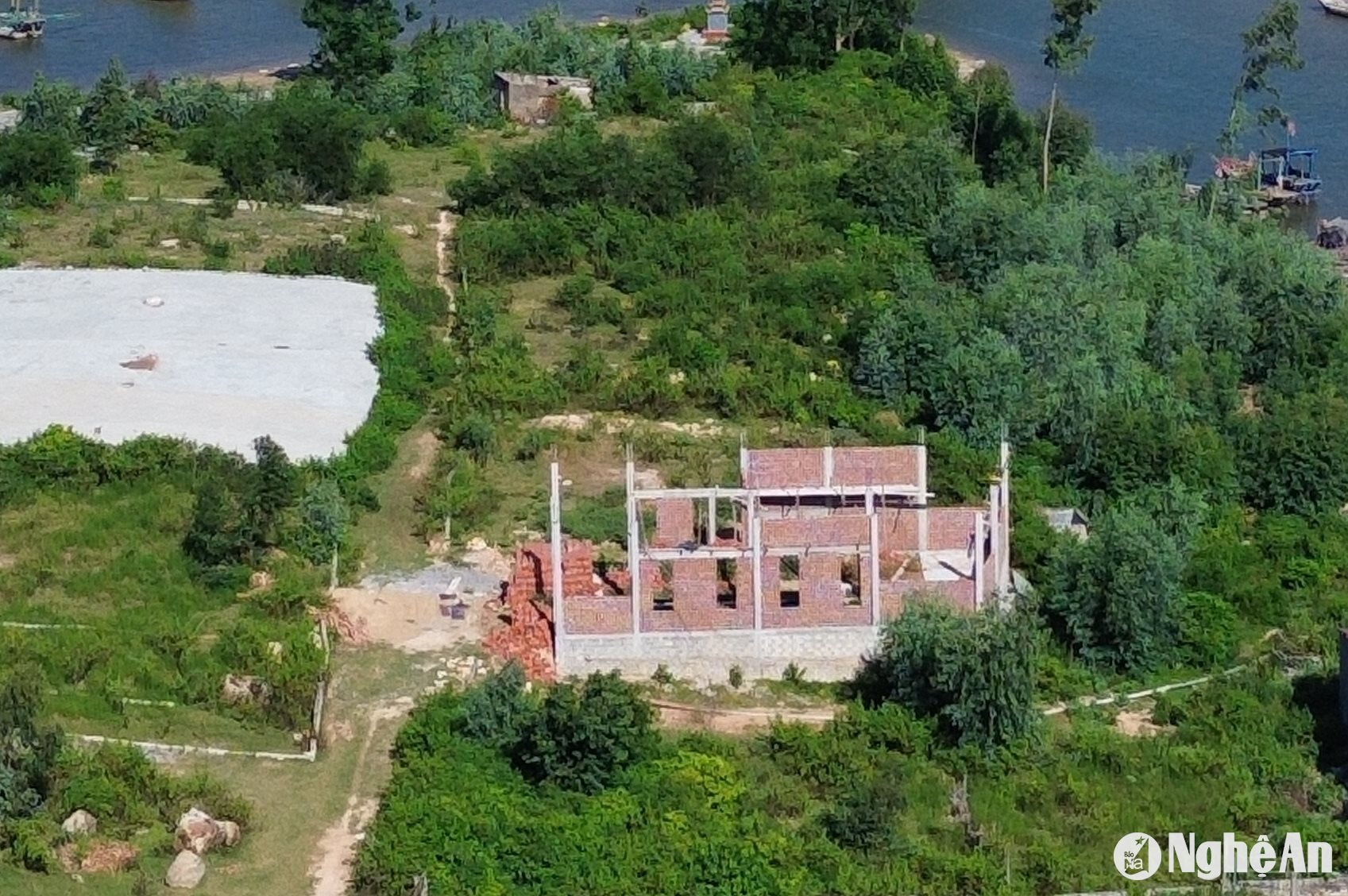
Through our investigation, we learned that in this area there are about 10 illegal foundations and rough houses. From September 2023 to early 2024, the People's Committee of Quynh Lap commune has made records of the violating constructions. Based on these records of violations, depending on the level, local authorities from commune to town level have issued decisions to handle. In particular, the People's Committee of Hoang Mai town has issued 8 Decisions to force the implementation of remedial measures. However, up to this point, households have not yet dismantled to restore the original state.
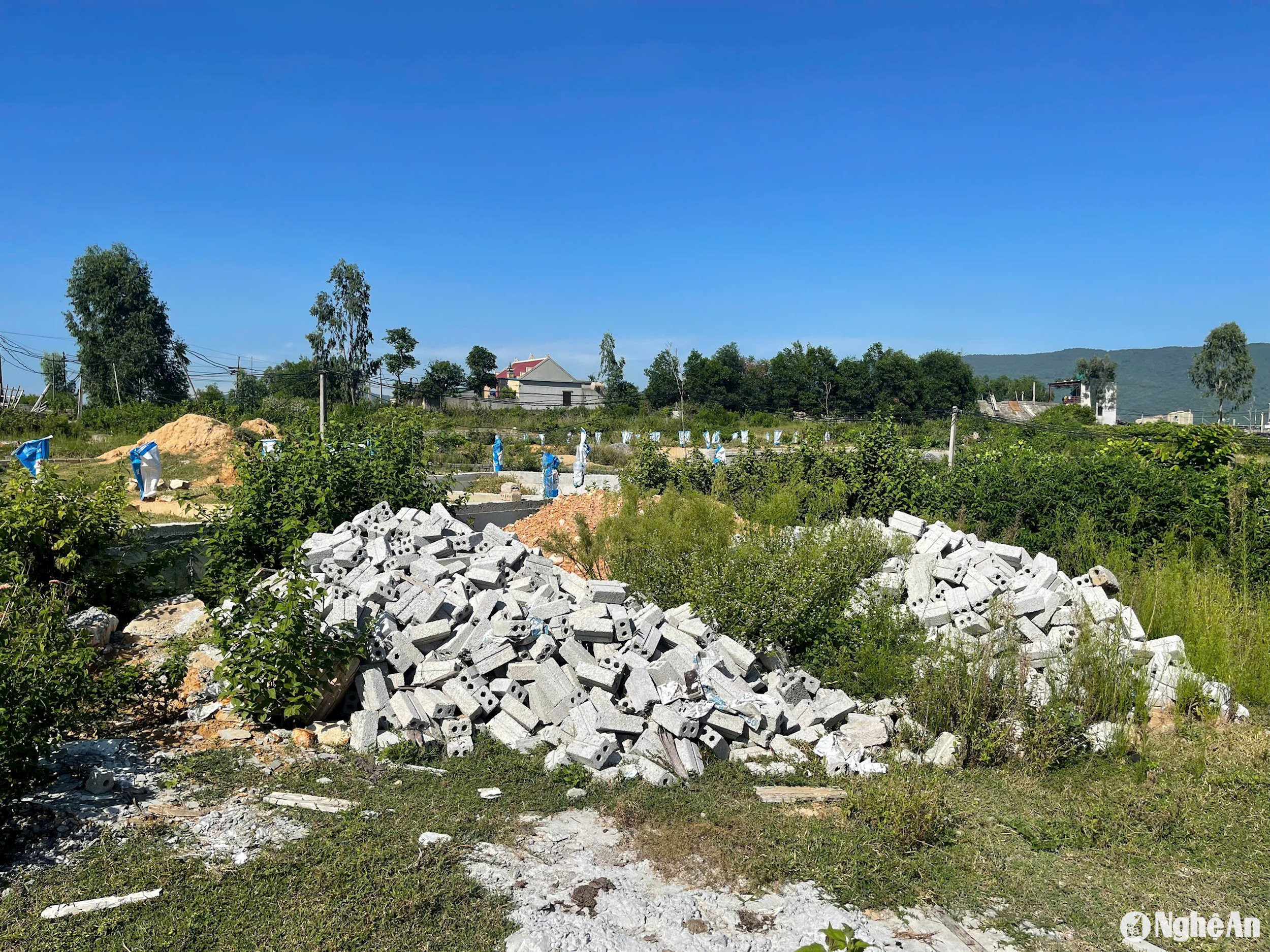
Set up a blockade
While following the only road leading to the area with many illegally built house foundations, we passed a checkpoint set up by the People's Committee of Quynh Lap commune to prevent vehicles carrying materials from entering the illegal construction area. This checkpoint was established from the end of 2023 until now.
Through a conversation with a member of the control team, it was learned that this control post must work continuously during the day, divided into 2 shifts each day. The daytime shift is from 6:30 to 18:30; the night shift is from 19:00 the previous day to 6:00 the next day.
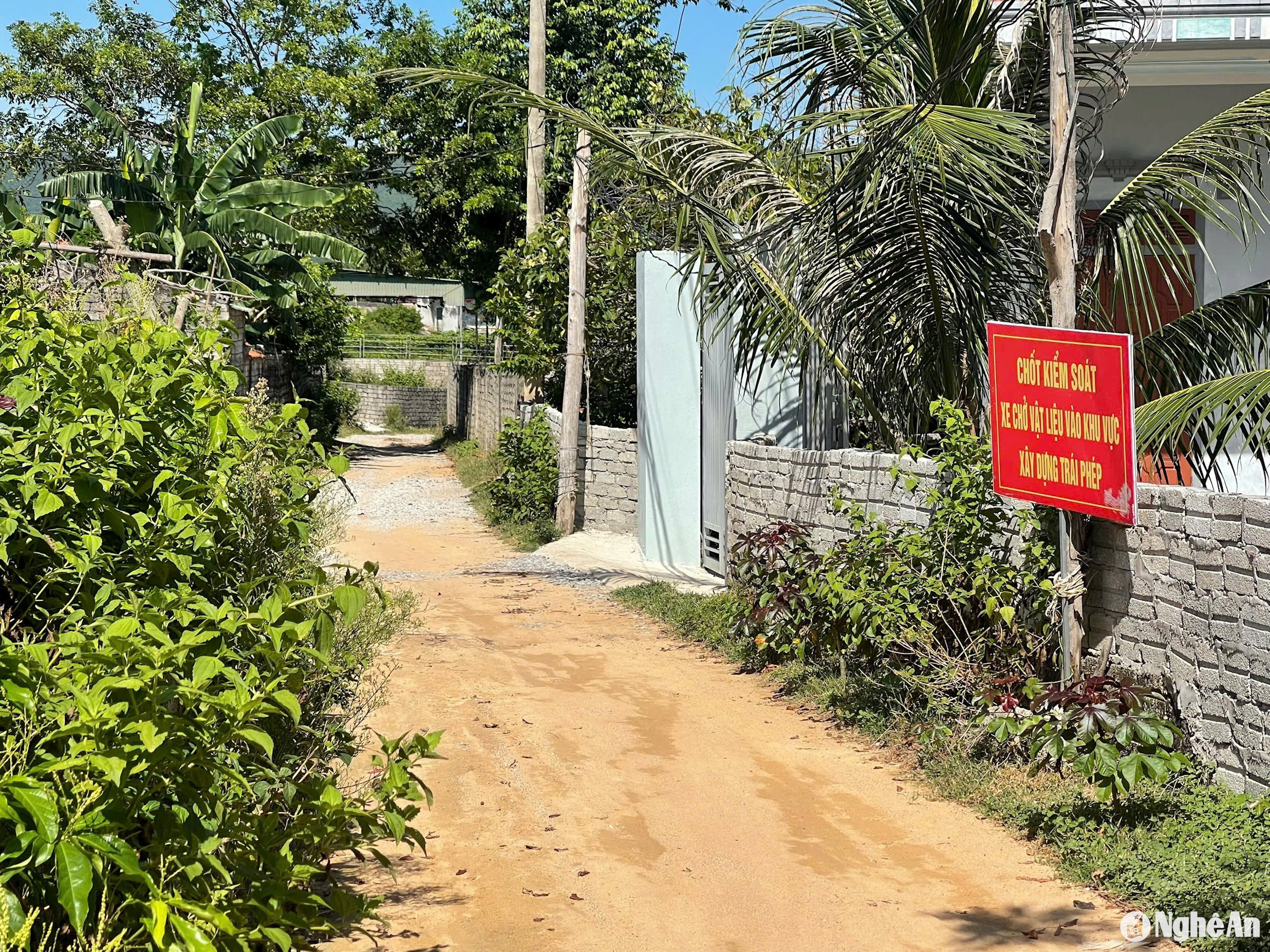
A member of the control team here said that there are 4 to 5 people on duty, each person on duty is given 70,000 VND for food. At first, the control post was built roughly in the corner of the wall, later they borrowed a level 4 house with a corrugated iron roof from the people. The members of the shift have to take turns cooking, but sometimes there is nothing to cook. It is extremely inconvenient.
Perhaps, this is an isolated case where the government has to set up a guard post to prevent people from illegally constructing. We also heard complaints from many people when they were on guard duty here. They said that there would be many other ways such as propagandizing and mobilizing people to comply with the law; strictly implementing regulations and forcing the demolition of illegal constructions... It is not necessary to set up a guard post like during the Covid-19 pandemic, then mobilizing from the Chairman of the Commune People's Committee to the police force to take turns guarding here.
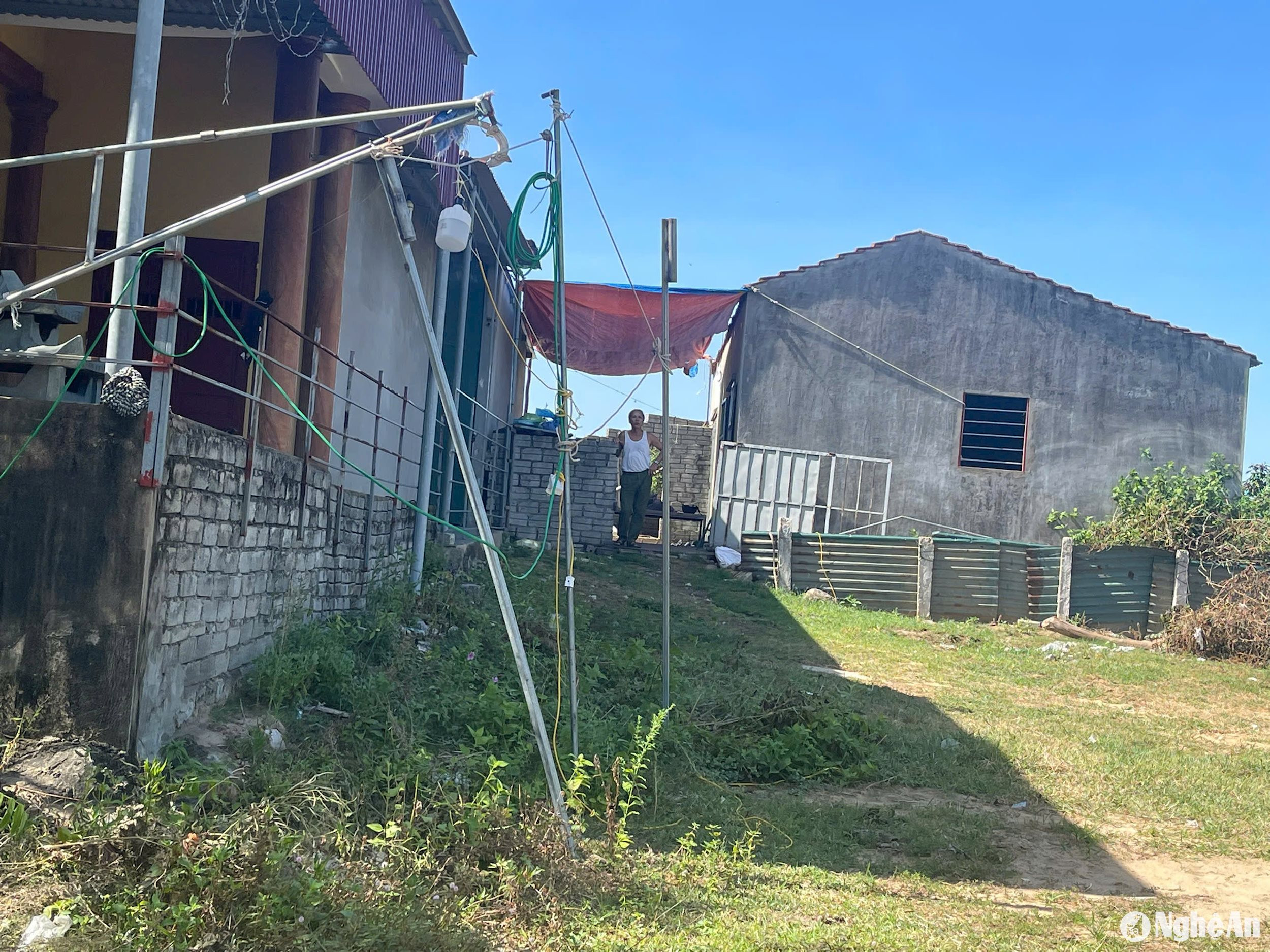
After many unsuccessful attempts to contact Mr. Nguyen Van Nho - Chairman of the People's Committee of Quynh Lap Commune, we talked to Mr. Ho Canh Thuan - Secretary of the Party Committee of Quynh Lap Commune. According to Mr. Thuan, the area where people illegally built has been in the planning of Dong Hoi Industrial Park for more than 10 years but has not been implemented, affecting the thoughts and aspirations of the people and affecting the lives of the people when the population has grown, while not being able to separate the boundary, build houses... This also makes this area a hot spot for illegal construction.
Mr. Thuan also said that the local government has regularly propagated, but the legal understanding of a part of the people is still limited; people have a mentality of jealousy towards previously built cases, so illegal construction still occurs.
Currently, the commune has established checkpoints to prevent illegal construction in a timely manner, and to propagate and mobilize people to follow the planning, because once illegal construction is carried out in the planning area, when relocation is carried out, people will be disadvantaged when they are not compensated.
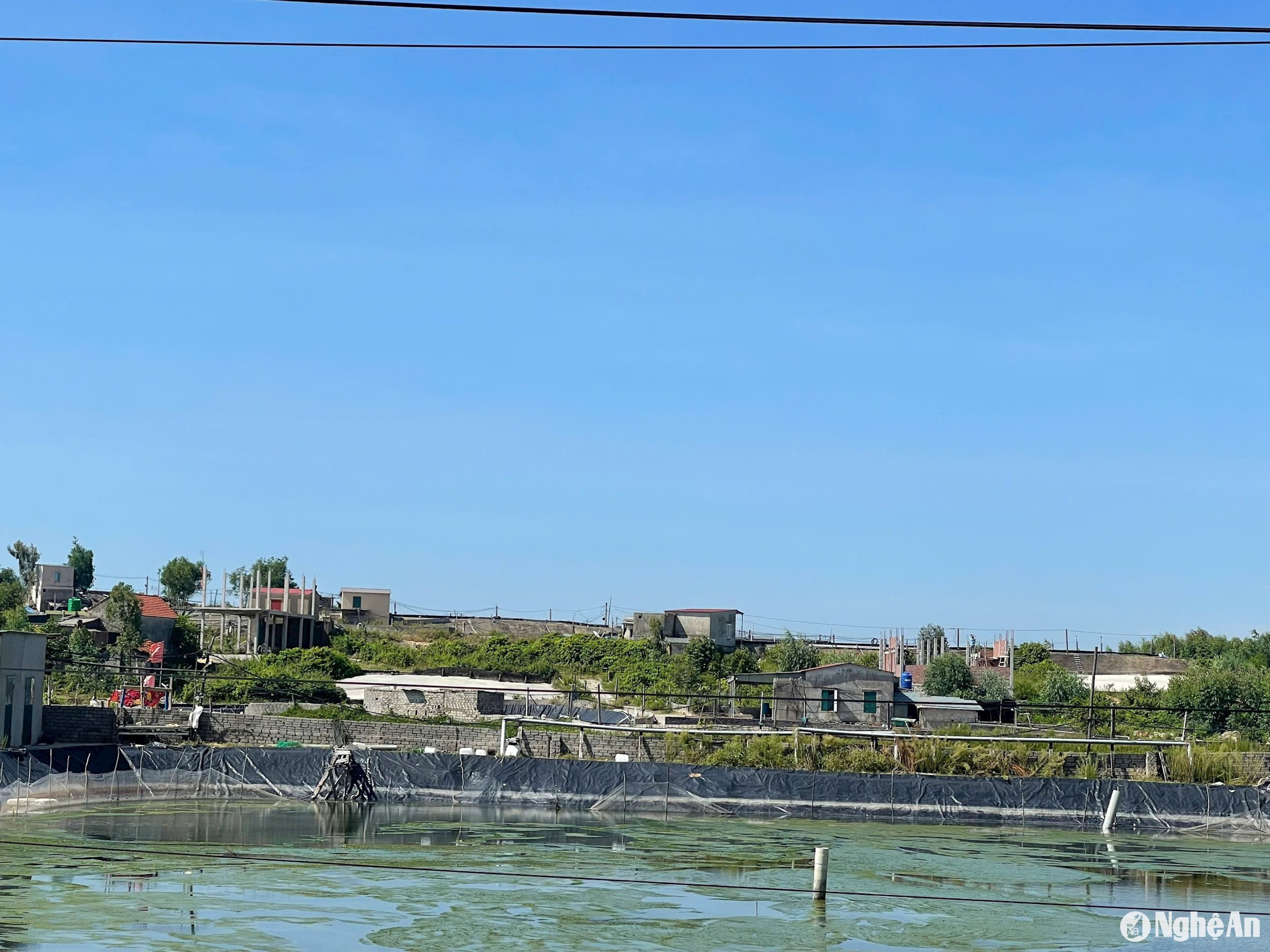
Regarding the handling of illegal constructions, Mr. Thuan informed that the local government has coordinated with the People's Committee of Hoang Mai town to issue decisions on handling according to their authority. Currently, they are consolidating the files and handling the easy constructions first, then the difficult ones.
It can be seen that the illegal construction on agricultural and forestry land and in the planning area of Dong Hoi Industrial Park is the responsibility of the local government. If this situation is not handled thoroughly, it will lead to many consequences, affecting the future site clearance work and the strictness of the law.


